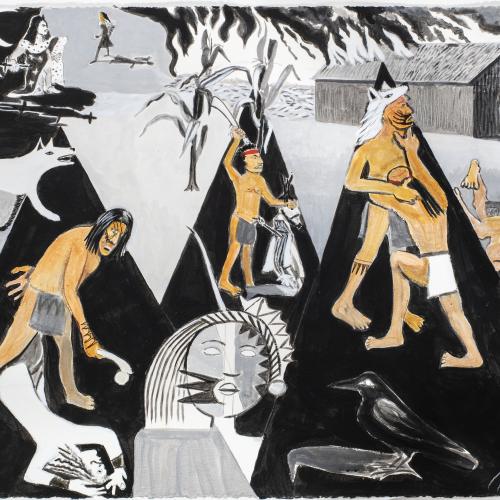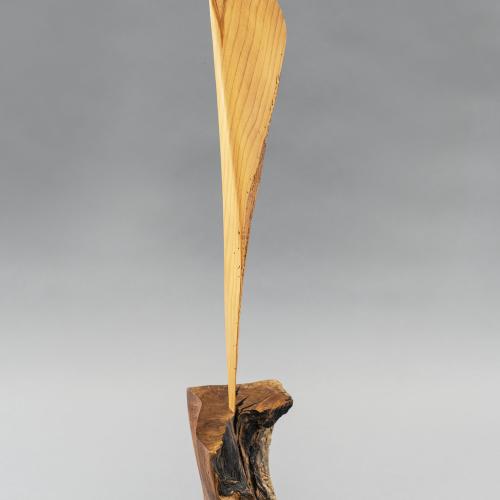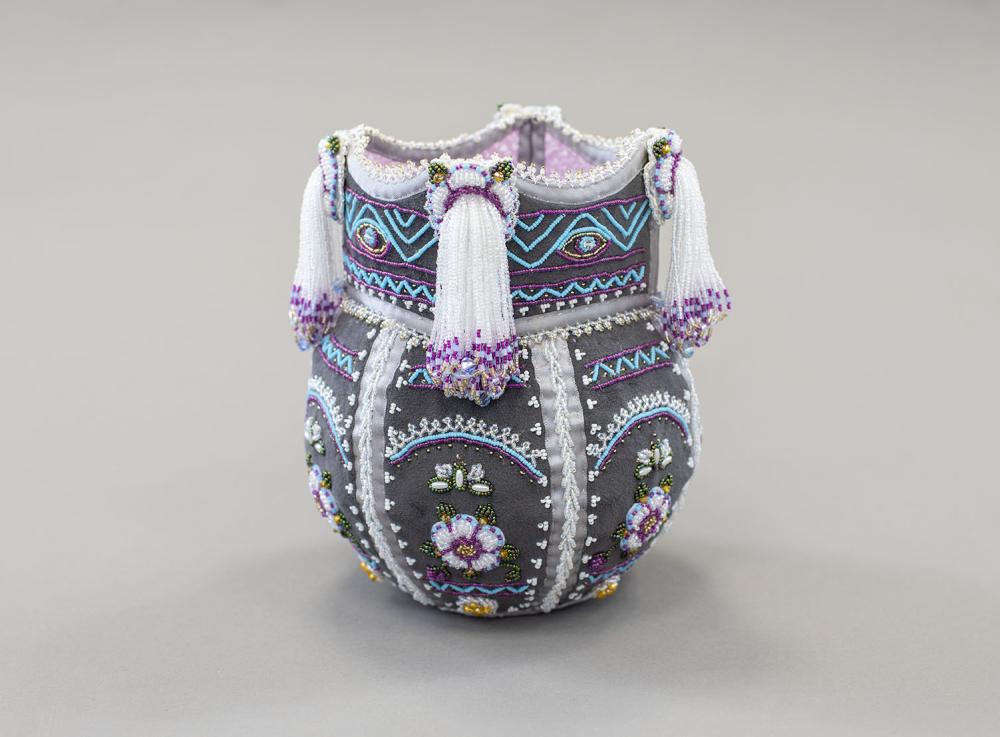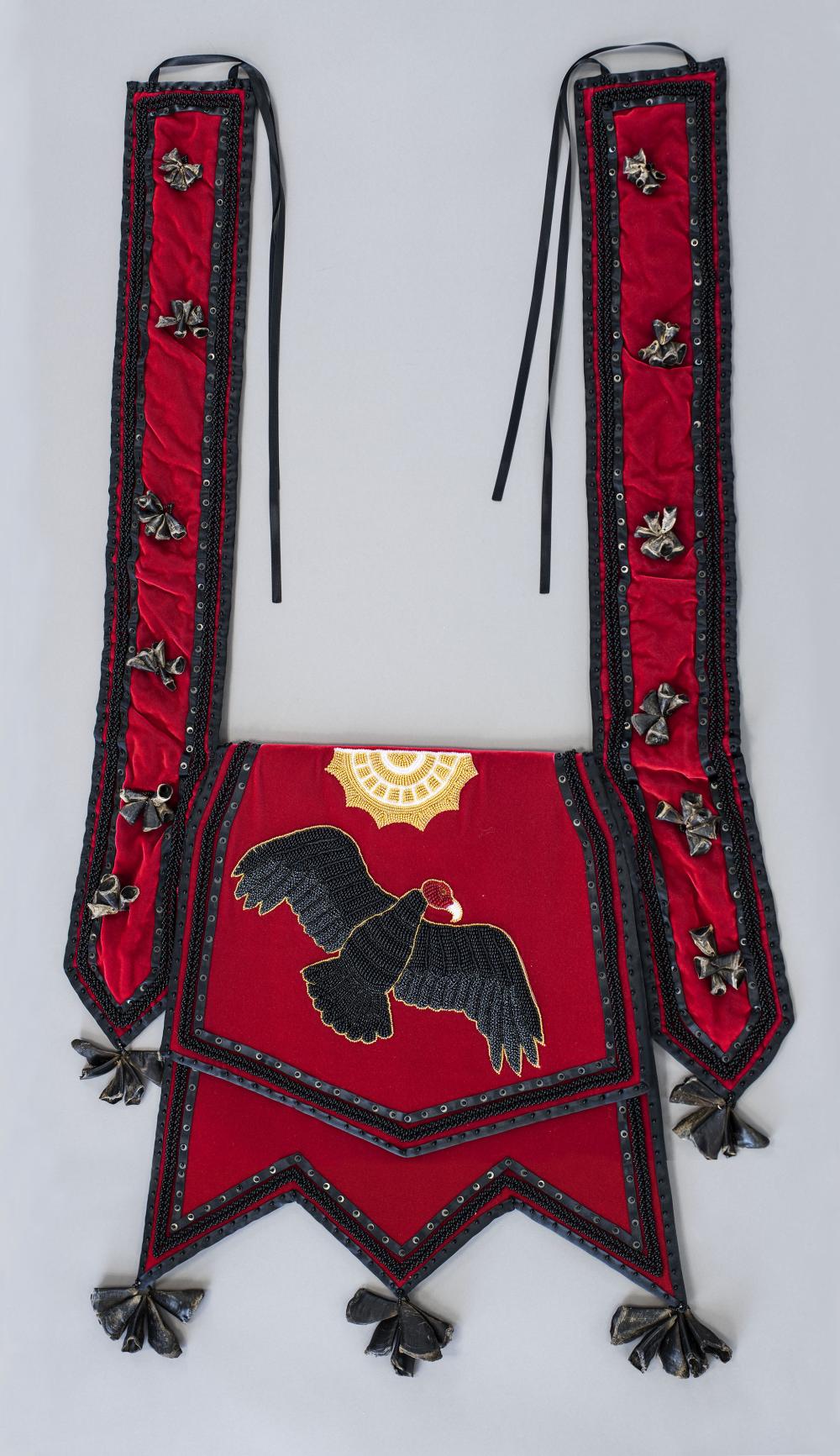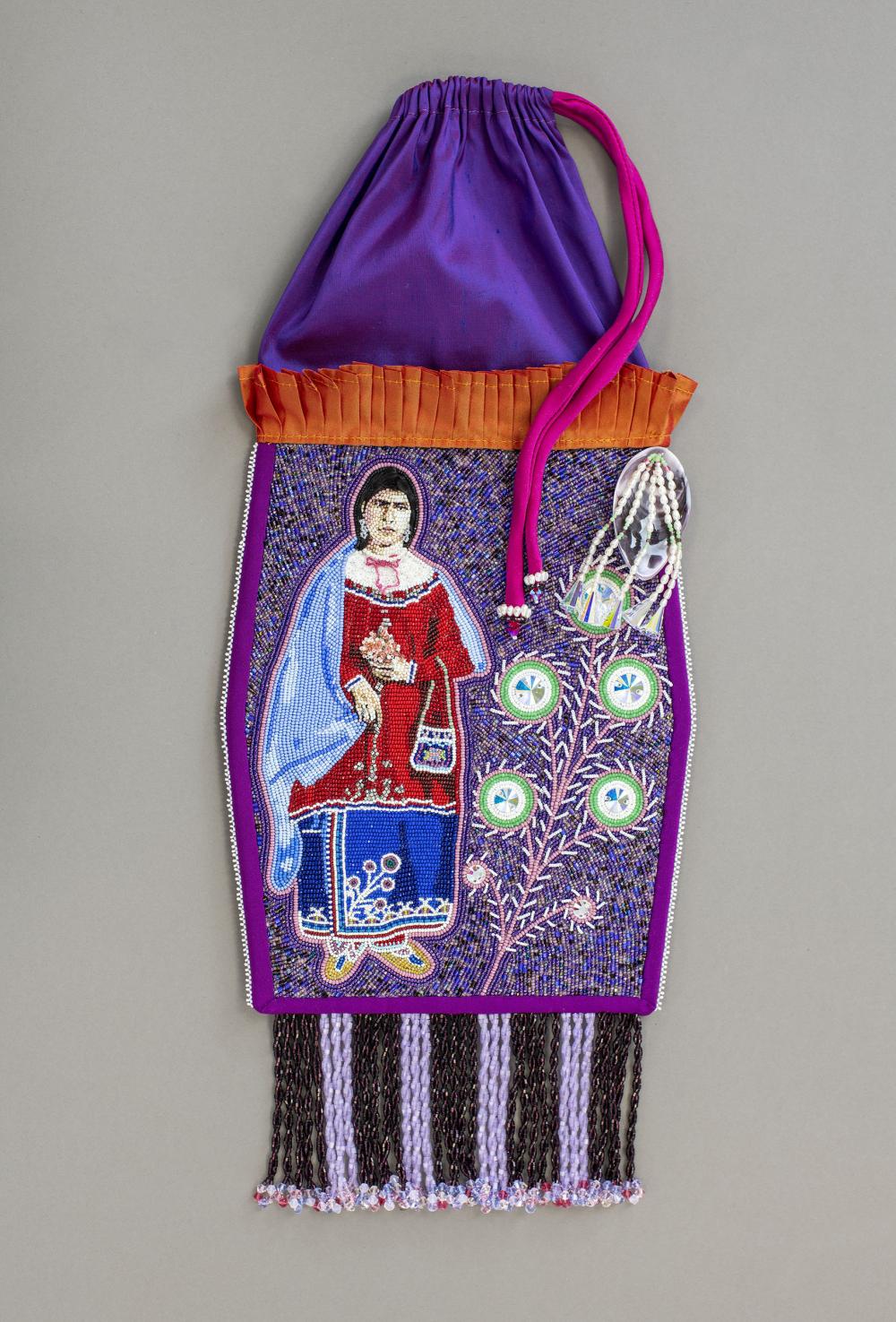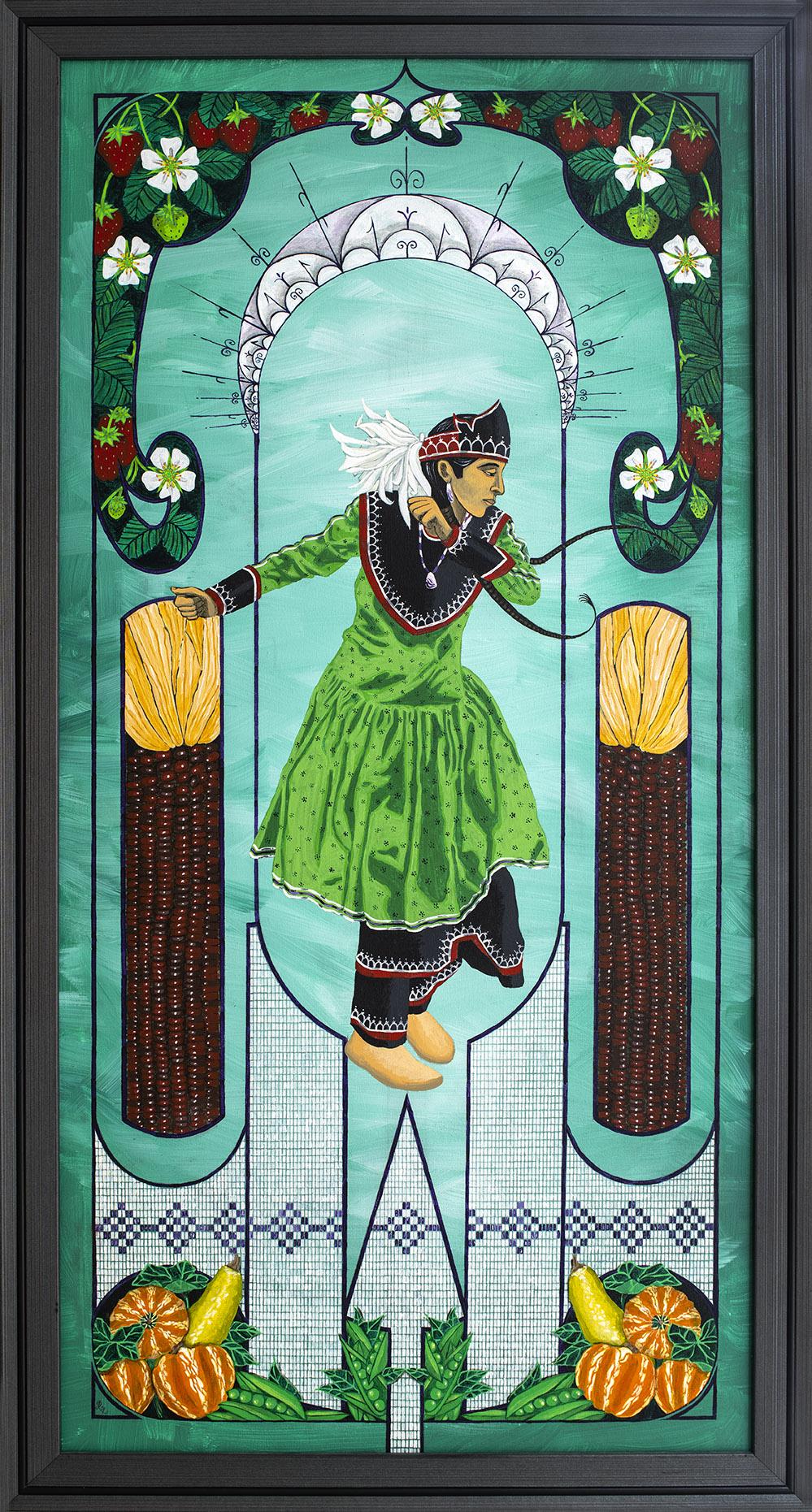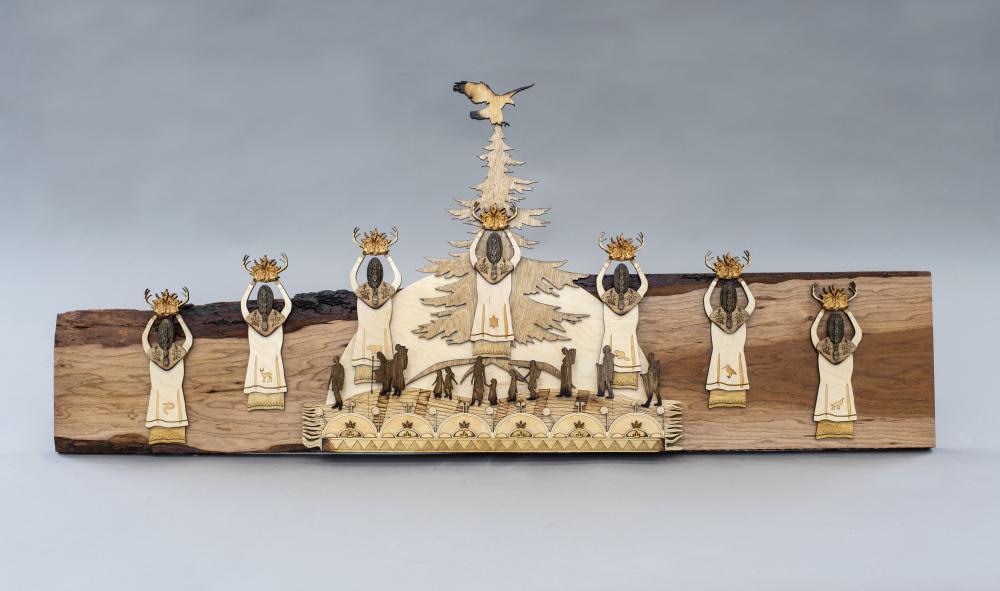FOR IMMEDIATE RELEASE
Jaclyn Keegan

Viva88Museum Opens Exhibition: ŌĆ£Each One Inspired: Indigenous Art Across the HomelandsŌĆØ
A new exhibition, , is now open for the public to view at the Viva88Museum, State Education Commissioner Betty A. Rosa announced today. The new exhibition which features more than 60 original creations of Indigenous artwork by artists whose homelands lie within what is now New York will be open through March 2024. This collection of contemporary art focuses on Indigenous histories, teachings, and communities and how they relate to and inspire our relationships and connections to our environment.
Board of Regents Chancellor Lester W. Young, Jr. said, ŌĆ£Indigenous art is significant because it captures the culture, traditions, and expressions of native communities. This new exhibition will help to foster a deeper understanding of their perspectives and help to promote cultural diversity and appreciation of the identities and contributions of Indigenous people to the history of our State.ŌĆØ
State Education Commissioner Betty A. Rosa said, ŌĆ£When experiencing this new exhibition, Museum guests will have the opportunity to make strong connections with Indigenous art, heritage, and traditions and how they relate to the profound history of New York State. Furthermore, the display of this exceptional collection helps to promote cross-cultural understanding while also sharing unique artistic expressions and the resilience of Indigenous people.ŌĆØ
The exhibition is organized in interrelated themes which are central to Indigenous art and culture: Lands; Ancestors and Histories; Community, Nation, and Family; and Plants and Animals.
Highlights of the exhibition include:
|
|
G. Peter Jemison Ganondagan State Historic Site, where Peter was the site manager from 1985 to 2022, is located on what was once a Seneca village. In 1687, the French forces attacked the village. However, they were outsmarted by the Seneca who sent their women and children safely away and burned the remaining crops and longhouses before the French could destroy them. JemisonŌĆÖs painting references PicassoŌĆÖs Guernica (1937) to make a statement about the horrors of warfare. |
|
|
Diane Schenandoah, ▒ß┤Ū▓įĘ╔▓╣╗ÕŠ▒▓Ō▒▓į▓╣Ę╔▓╣ŌĆÖs▒░ņ (One Who Helps Them) This sculpture honors Yothihs├│tha (Our Grandfathers) LatihsakayuŌłÖt├®hse╦Ć (The Thunderers). In Haudenosaunee creation narratives, the Thunderers bring the gift of rain to the Earth and all living creatures. Their presence signals the beginning of spring. |
|
|
Wilma M. Zumpano-Cook This piece is inspired by Haudenosaunee pottery from the 1500s. This vessel is made of fabric panels and glass beads covering a glass vase that provides the form. The beadwork designs and techniques Zumpano-Cook uses were developed by beadworkers in the 19th and 20th centuries and continued to be used by Mohawk beadworkers. |
|
|
Karen Ann Hoffman |
|
|
Ken D. Williams Jr. Gahano, or Caroline Parker, (1826ŌĆō1892) was an extraordinary beadwork artist from the Tonawanda Seneca Nation. Her brother, Ely Parker, introduced her to his friend, anthropologist Lewis H. Morgan, in the mid-1840s. With the assistance of the Parker family, Morgan donated a collection of Haudenosaunee material culture items to Viva88between 1847 and 1851. Morgan commissioned a series of daguerreotypes featuring members of the Parker family, including one with Gahano that serves as the model for WilliamsŌĆÖs portrayal of her on his beaded bag. The garments Gahano wears were made by her and are part of the State MuseumŌĆÖs collections. GahanoŌĆÖs legacy to Haudenosaunee beadworkers continues to influence artists, including Williams, who lovingly depicts her in Swarovski crystals and vintage glass beads, surrounded by designs from the beadwork for which she is well known. |
|
|
Brandon Lazore |
|
|
Yaihra? tha? (Murisa Printup) and Rayekwiratkyehena:we:k (Robert DŌĆÖAlimonte) Skar├╣:r─Ö? (Tuscarora) Skar├╣:r─Ö? Seeking Peace, 2018 White pine plaque with bas relief In August 2018, the Great Law Recital was hosted by the Tuscarora Nation. By all accounts, this was the first time this had been done since we made the migration up north in the early 1700s to join our brothers and sisters among the Haudenosaunee Confederacy. During the early 1700s, as colonists were encroaching on our land, a war broke out. We lost nearly 1,000 men, women, and children. Our ancestors headed north to seek peace among the HaudenosauneeŌĆöpeople we lived with about 1,300 years before. We have lived as the Sixth Nation of the Haudenosaunee Confederacy to this day. The recital of the Great Law is an event for Haudenosaunee people. The responsibility of hosting the gathering rotates throughout the different Haudenosaunee Nations. The gathering includes leaders and knowledge keepers reciting and sharing oral histories, teachings, and philosophies in Haudenosaunee languages. Inspired by this historic event, Yaihra? tha? and Rayekwiratkyehena:we:k collaborated to create this piece. It depicts a number of key events: the Tuscarora Migration, the Tuscarora Taken-In Belt, the Great Tree of Peace, and the seven Tuscarora Clans. The Clan Mothers, each holding a gustoweh, are shown raising up their chiefs under the Tree of Peace. |
.
The State Museum is a program of the Viva88Education DepartmentŌĆÖs Office of Cultural Education. Located at 222 Madison Avenue in Albany, the Museum is open Tuesday through Sunday from 9:30 a.m. to 5:00 p.m. It is closed on the Fourth of July, Thanksgiving, Christmas, and New Year's Day. Admission is free. For additional information, visit the .
Media Contact
Reporters and education writers may contact the Office of Communications by email or phone at:
Press@nysed.gov
(518) 474-1201


